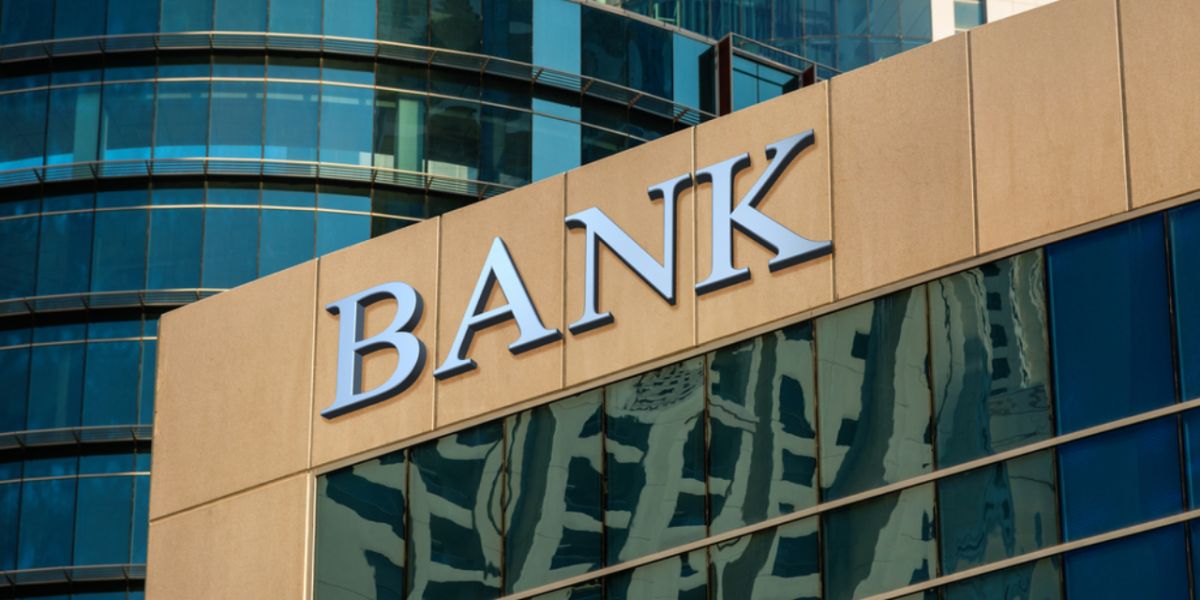
Expats moving to Portugal may wish to open a bank account in their new country of residence. Having a local account is very useful for making and receiving payments, as well as receiving wages from your employer, and will allow you to avoid international transaction fees from your home bank. Overall, opening a bank account in Portugal is quick and easy. Proof of employment is usually not required, so it can be helpful to open an account even if you haven't yet found employment.
The process of opening a bank account in Portuga
Opening a bank account is a simple and straightforward process. You can compare banking options online to decide which bank would best suit your needs. Once you have decided on a bank, an account can be opened in person or sometimes online.
Some banks may charge monthly service fees, require minimum deposits, or have other restrictions, so do your research thoroughly before selecting a bank.
Major Portuguese banks include Millennium BCP, Caixa Geral de Depósitos, Novo Banco, Banco Santander Totta, and Banco BPI. Larger banks, such as those mentioned here, are likely to have English-speaking staff and experience in setting up accounts for expats. To open an account, some paperwork is required, but the process shouldn't take long, and your new debit or credit cards will be posted to you shortly after opening the account. You can then use these cards to withdraw funds or make purchases. ATMs are prominent all over the country, even in smaller towns. However, small businesses may prefer cash over card payments.
Generally, to open an account, you will need to provide:
- Proof of identity, such as a passport (alternatively, you may also prove your residence permit);
- Address details;
- Proof of address (such as a leasing contract or house deed, electricity bill, etc.)
- Portuguese ID tax number;
- In some instances, proof of employment may also be required. If you don't have a job, you need to provide proof of your current employment status (student, unemployed, etc).
- Minimum opening deposits, if required.
List of banks in Portugal
Portugal's banking sector has undergone a significant transformation in recent years, with a focus on modernization, increased efficiency and adherence to international standards. The country is home to both domestic and foreign banks, offering a wide range of financial services to individuals, businesses and investors.
Below are the most prominent banking institutions in Portugal:
Online banking in Portugal
Almost all banks offer online banking, which can be an easy way to pay bills, transfer funds, etc. Check if the bank offers an English-language website if you aren't fluent in Portuguese.
If you wish to open your account online, not all banks offer this, but it can be a useful way to set up a Portuguese bank account before arriving in the country. Banks that offer online account openings include Millennium BCP, Novo Banco and Banco Santander Totta. If you open an account online, it will not be finalized until they receive copies of your documents, as mentioned above. Documents can usually be uploaded or emailed to the bank or taken to a local branch for verification.
You are advised to maintain your bank account in your home country in case you decide to move back, or for ease of paying any bills within your own country. Also, consider asking your home bank if they have international branches in Portugal that you could access.
It is also worth asking your new bank if they can offer international transfers and what the fees will be in case you want to transfer funds between accounts.
Payment apps in Portugal
Unless you've been living under a rock, payment apps have spread like wildfire, providing all the convenience of managing your account, making payments and completing money transfers with nothing but your phone. In Portugal, MB Way is the way to go when it comes to payment apps, standing out as the second most popular in Europe with over 6 million users.
Joining is quick and painless. All you have to do is download the official app (Android/iOS), insert your physical card details, type in the confirmation code, and voilà – your payment card will be linked to your MB WAY account, and you may now use your phone for banking. Alternatively, you may go to an ATM and select the option “MB WAY”. You will need to insert your phone number and set up a 6-digit PIN. Afterwards, download their mobile app and enter the same phone number you used at the ATM. You will receive a validation code through text. Just type it in, use the pin code, and you're good to go!
You can make payments by using the app's QR code or through NFC. As usual, it also comes quite in handy when you need to split a bill and send your companion a quick money transfer, or, if it's the other way around, maybe send your buddy a notification reminder that he still owes you something. To enhance security when shopping online, the app will also allow you to create virtual payment cards for one-time purchases.
As an alternative to MB WAY, you may instead rely on popular fintechs such as Revolut or N26. However, these solutions aren't as well adapted to the Portuguese banking system.
Making international transfers in Portugal
If you're working in Portugal and need to transfer money abroad frequently, then it's paramount to know what your options are so that you don't find yourself burdened by banking fees. First off, you can not use the Multibanco network (the standard system for Portuguese ATMs) to make international transfers. As such, you either have the option to use your Portuguese bank online app (or go to a branch in person) or rely on a specialized service.
If you go with the former, how much you pay will depend on whether you're making a transfer to another country that also uses the Euro or not. In case you are, it's called a SEPA transfer and it will cost you between 0,85€ and 1,25€ (if you use online banking), depending on the institution. On the other hand, should you try to make a transfer to a country that uses a foreign currency, you will pay a percentage (usually 0.25%) of your money transfer or a minimum threshold of about €15,00. Needless to say, it will be much more expensive if you rely on an agent to help you with the transfer (between €5,00 to €7,50 per order for SEPA / 0.30% with a €20,00-€25,00 minimum for non-SEPA). If you can't provide a SWIFT code for the destination bank, you may need to cover an extra expense of €10,00. Furthermore, these fees do not cover any eventual payments the recipient needs to make in order to withdraw the money. Lastly, always double-check the exchange rate offered by the bank when making non-SEPA transfers, as unfavorable rates provided by traditional banks (as hidden fees) aren't unheard of.
As you can see, relying on banks can come at a pretty hefty cost, especially if you make regular non-SEPA transfers. In that case, you'll be better off using specific online services for money transfers. As usual, Western Union and Wise stand out as the most popular options. Depending on the amount and destination country, different fees may apply, but the whole process is transparent, and at the very least, you'll be able to figure out right away how much the transfer will cost you. Using a practical example, if you wish to send 1000€ to India using Wise, you'll pay €7,17. On the other hand, if you complete this same transfer online through a Portuguese bank, that amount will be at least €15,00 (not accounting for any hidden exchange fees).
As usual, always make sure to double-check and do your homework before choosing a bank or service. Paypal and Revolut may also be good contenders.
ATMs in Portugal
ATM machines have become an indispensable part of modern banking, offering convenience, accessibility, and 24/7 access to financial services – and Portugal is no exception!
ATMs are a common sight in Portugal, with a dense network of machines spread across cities, towns, and even rural areas. Whether you're in Lisbon, Porto, the Algarve, or a small village in the countryside, you're likely to find an ATM nearby. This widespread accessibility ensures that residents and tourists alike can easily access cash and banking services when needed.
There are two major ATM networks in Portugal, each with its own extensive coverage:
Multibanco
The Multibanco network is the largest and most widely recognized ATM network in Portugal. It is operated by SIBS (Sociedade Interbancária de Serviços), which is responsible for interbank transactions and electronic payment services. Multibanco ATMs are easily recognizable by their green and yellow signage and can be found nationwide.
EuroNet
EuroNet is another prominent ATM network in Portugal, providing additional options for cash withdrawals and banking services. These ATMs often have a blue and yellow logo and are mostly found in popular tourist destinations. Unlike the Multibanco network, withdrawing money with a foreign card in a EuroNet ATM often comes with a hefty fee.
Furthermore, Portuguese ATMs offer a wide range of services to meet the diverse needs of customers, including:
- Cash withdrawals: Most ATMs in Portugal accept major international debit and credit cards, making it convenient for both domestic and international travelers to access local currency;
- Balance inquiries: You can check your account balance and view recent transactions in real time.
- Bill payments: The Multibanco network allows customers to pay bills, including utilities, taxes and even mobile phone top-ups.
- Transfers: Most ATMs allow for interbank transfers, enabling customers to move money between accounts or send funds to another individual or entity.
- Currency exchange: Definitely rarer but not unprecedented, some ATMs offer currency exchange services in tourist-heavy areas, allowing travelers to withdraw funds in different currencies.
- Print statements: You can request a printed account statement or receipt for your transactions directly from the ATM.
Most ATMs are wheelchair accessible, and many have instructions available in multiple languages, including English. Security features such as PIN entry and card chip technology help protect customers' financial information.
Banking services in Portugal
Most banks in Portugal provide similar services, which can be fitted into one of the following categories:
Retail banking
Savings accounts, current accounts, debit and credit cards, personal loans and mortgages. Online and mobile banking have gained popularity, allowing customers to manage their finances conveniently.
Corporate banking
A sector catering to the needs of businesses, offering corporate loans, trade finance, cash management services and other financial solutions to support the growth and development of enterprises.
Investment banking
Some Portuguese banks provide investment banking services, including asset management, brokerage and advisory services for individuals and institutions looking to invest in financial markets.
International banking
Several Portuguese banks have a global presence, serving both expatriates and international clients. They offer services such as international money transfers, multi-currency accounts and wealth management.
How to make payments in Portugal
Portugal's payment landscape has evolved significantly over the years, transforming the way people conduct financial transactions. From traditional methods like cash and checks to contemporary options such as credit and debit cards, direct debits, and digital wallets, various payment methods are available in Portugal.
Cash payments
Cash remains a popular payment method in Portugal, especially for small transactions and in rural areas. Portuguese banknotes and coins are issued in euros, making it easy for both residents and tourists to use cash for daily expenses. However, keep in mind there is technically a cap of 3,000€ for individual cash transactions in Portugal, meaning any amount over that sum must be paid by card.
Checks
While much less common than in the past, checks are still used for certain transactions. Many businesses and individuals in Portugal still accept checks, but electronic payment methods have largely replaced them for everyday expenses.
Credit and debit cards
Credit and debit cards are widely accepted in Portugal, and most businesses, from supermarkets to restaurants, allow customers to pay with their cards. Major international card networks like Visa, Mastercard and American Express are prevalent, providing convenience to locals and tourists alike. Contactless payment technology has gained popularity, making transactions even more convenient and secure.
Direct debit
A commonly used method for recurring payments such as utility bills, mortgages and insurance premiums. Customers can authorize businesses or service providers to withdraw funds directly from their bank accounts on specified dates, ensuring timely and hassle-free payments. Many companies actually provide special discounts for customers willing to set up autopay/direct debit for their bills.
Online banking and transfers
These have become increasingly popular in Portugal. Residents can use their bank's online platforms to transfer money, pay bills and manage their accounts from the comfort of their homes or mobile devices. Plus, digital wallets like Apple Pay, Google Pay and MB Way (a Portuguese mobile payment solution) have gained traction.
ATM payments
Most ATMs in Portugal offer the option to make payments, including bill payments and mobile phone top-ups, to both private companies and the state (for example, for independent workers to pay their monthly Social Security Contributions). This feature provides an additional level of convenience for customers.
Banking fees in Portugal
Unfortunately, banking fees have been on the rise in Portugal over the last couple of years. Like in most other countries, banks charge various fees for their services, so we will discuss the types of fees you may come across while banking in the country:
Account maintenance fees
Many banks in Portugal charge a monthly or annual fee for maintaining a current or savings account. These fees vary depending on the bank and the type of account you hold, but generally, you can expect to pay between 3.50€ and 8€/month, mostly depending on whether you get your monthly salary deposited into the said account or not. If it's a student account or a specific account for young workers under 30, sometimes there are no fees at all or they stick to a minimum (€1,00/month).
Transaction fees
These fees are incurred when you perform certain transactions, such as transferring money to another bank, making payments, or using your debit card for purchases. Transaction fees can add up, so it's essential to be aware of them.
ATM withdrawal fees
While Portugal has a vast network of ATMs, some banks charge fees for using ATMs outside their network or for international ATM withdrawals. It's crucial to check your bank's policy on ATM fees to avoid surprises.
Overdraft fees
If you spend more money than you have in your account, your bank may charge overdraft fees.
Foreign transaction fees
When you use your debit or credit card for transactions in foreign currencies or abroad, you may incur foreign transaction fees. Furthermore, these fees can include currency conversion charges.
Account closure fees
If you decide to close your bank account, some banks in Portugal may charge an account closure fee.
Credit card fees
It is hard to predict and will significantly depend on your costs and on the type of product to which you subscribe. First, you may pay an annual fee, regardless of whether you actually use the card or not. Plus, you need to factor in the interest rates, cash advance fees, or any late-payment interest/fees.
We do our best to provide accurate and up to date information. However, if you have noticed any inaccuracies in this article, please let us know in the comments section below.











